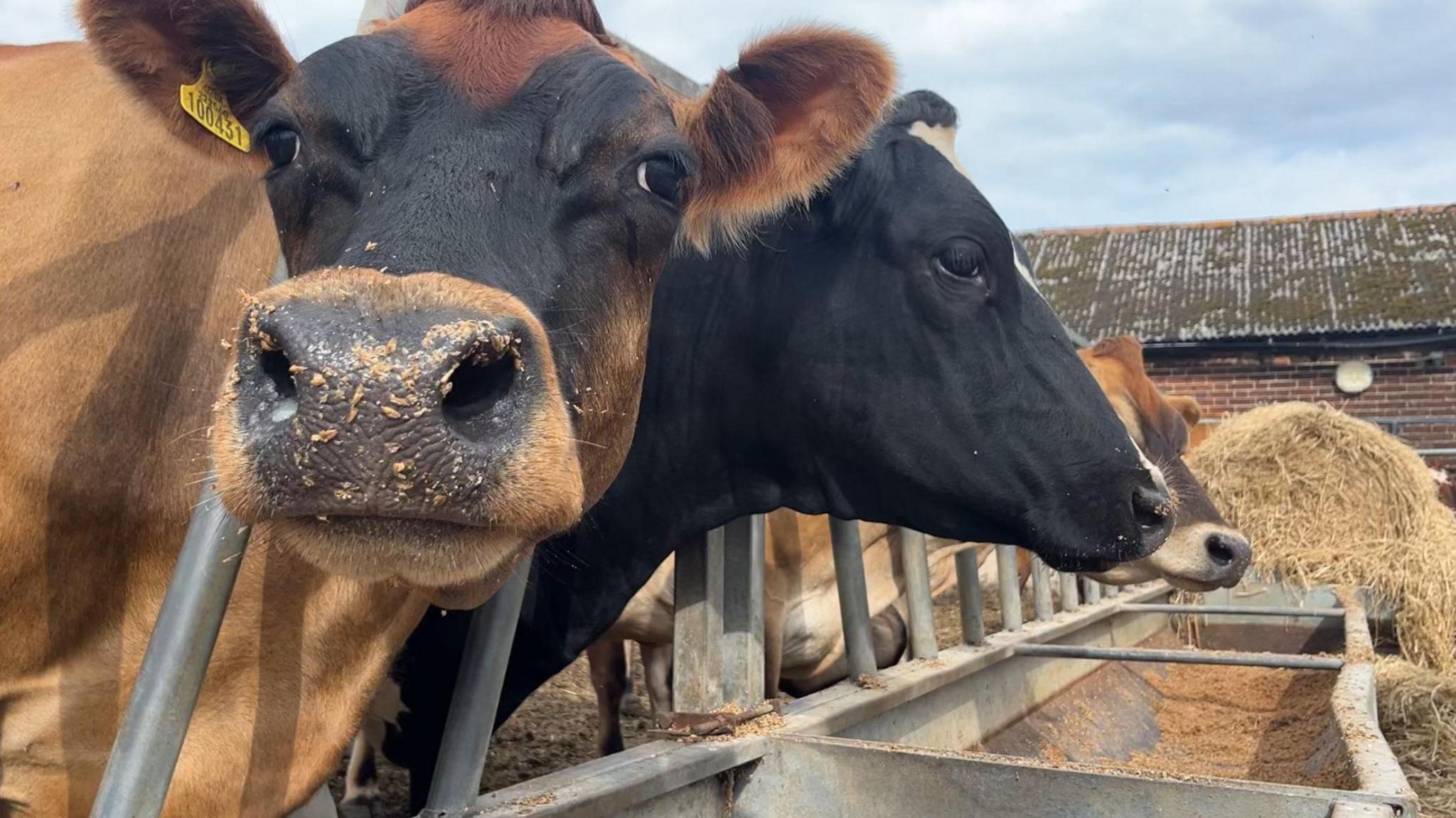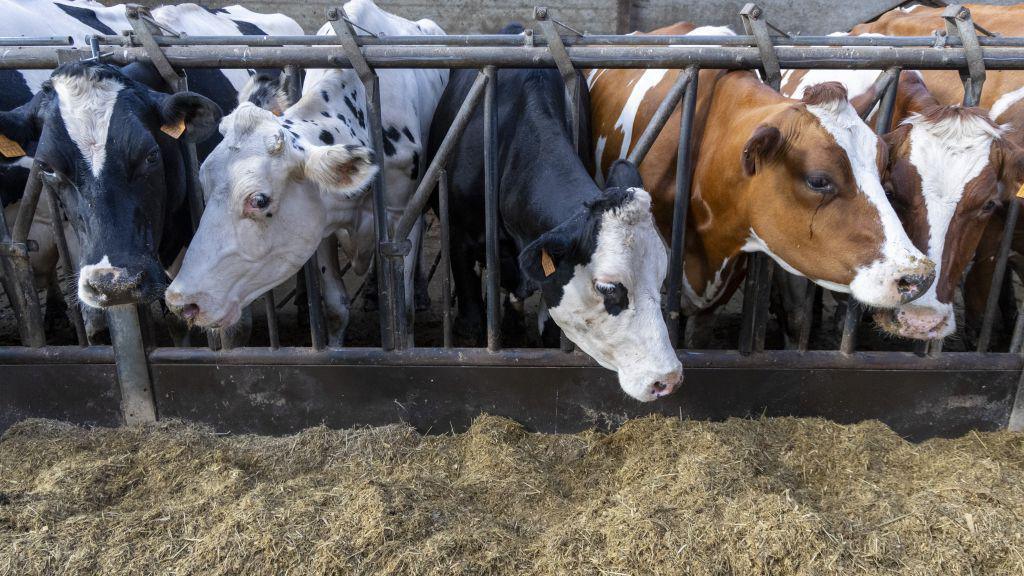Farmers want livestock imports paused to stop bluetongue disease

There have been 70 confirmed bluetongue cases in England
- Published
Farmers have called for a pause on all livestock imports to the island of Ireland due to the risk of bluetongue disease.
The Ulster Farmers’ Union (UFU) and Irish Farmers’ Association (IFA) say there would be "significant consequences" for farmers if an outbreak was detected in Northern Ireland or the Republic of Ireland.
Bluetongue – or BTV-3 – can cause infertility and breathing problems in some animals but does not affect people or food safety.
There have been 70 confirmed cases in England and 700 cases in northern France.
'Now is the time to act'
UFU president William Irvine said it was "time to act" by pausing all livestock imports immediately.
“Both the north and south of Ireland have managed to remain free from bluetongue to date, but the threat it now poses for our beef and sheep farms is huge," Mr Irvine added.
In England, restricted zones (RZ) are now in place in Kent, East Sussex, East Riding of Yorkshire and parts of Lincolnshire, external.
UK chief veterinary officer Christine Middlemiss urged farmers within bluetongue control zones to adhere to restrictions and remain vigilant.
The restrictions mean susceptible animals - which include cattle, sheep, goats and deer - cannot be moved out of the zone without a specific licence.
Keepers in the zones will also need to follow strict rules on animal movements.

What is bluetongue?
Bluetongue is a notifiable disease caused by infection with bluetongue virus.
Bluetongue virus is mainly spread by biting midges.
It affects:
Sheep
Catle
Other ruminants such as deer and goats
Camelids such as llamas and alpacas
Rarely, bluetongue can affect dogs and other carnivores if they eat infected material (such as aborted material and afterbirth).
It does not affect people or food safety, but outbreaks can result in prolonged animal movement and trade restrictions.
Signs and symptoms are high fever, lameness, inflamed mucous membranes of the mouth and nose.
This includes sores and ulceration, swollen neck and head, profuse salivation and nasal discharge.
Animals may also appear stiff and be reluctant to move due to swelling around the hooves.
Earlier this month, the UK government permitted the use of external three unauthorised bluetongue serotype 3 (BTV-3) vaccines within the UK, external.
'Acting fast'
IFA president Francie Gorman said the introduction of BTV-3 onto the island of Ireland would cause "serious disruption" to live trade for cattle.
"As farmers we must also ensure we are acting responsibly to protect our animals and the island of Ireland from the introduction of this disease," Mr Gorman added.
In a joint statement by the UFU and IFA, they said they were "committed to working together to protect every farm family on this island".
“We do not want our farm families to experience the devastation of BTV-3 or for it to take hold in our livestock industry and we urge every farmer to help us protect our agri industry.
“By acting fast, pausing imports of live animals, increasing awareness of clinical signs and ensuring high levels of biosecurity, we can reduce the financial and personal consequences of a BTV-3 outbreak."
The environment minister Andrew Muir said he is "concerned" about bluetongue and said he'd spoken to the president of the IFA and UFU on Thursday evening.
Speaking to BBC News NI's The View programme Muir said: ''I welcome their call, their call is to encourage good practice from famers around this. Any countries who have bluetongue within their nation, there is restriction in terms of movements, it is very important we keep this out of NI.''